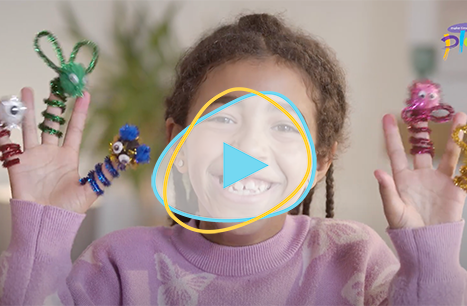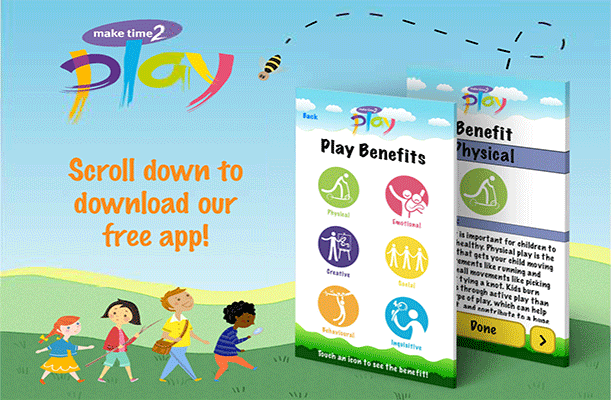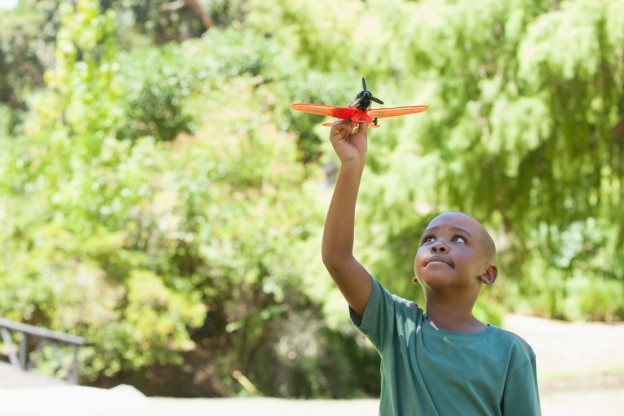Play sessions get kids more active than at any other time of the school day according to new report
 New research has revealed that playing is the best route to physical activity for primary school children. The study, undertaken by the British Toy & Hobby Association (BTHA) and the Institute of Youth Sport at Loughborough University, suggests that children are more active when given time to play than at any other time in their school day, making play the most effective way for primary school children to reach the minimum government guidelines.
New research has revealed that playing is the best route to physical activity for primary school children. The study, undertaken by the British Toy & Hobby Association (BTHA) and the Institute of Youth Sport at Loughborough University, suggests that children are more active when given time to play than at any other time in their school day, making play the most effective way for primary school children to reach the minimum government guidelines.
The ‘Active Play Report’ measured primary school children’s activity levels first hand and found that physical activity during play is higher than at break‐times, lunch‐breaks and some school PE lessons. In fact, children were moderately or vigorously active for almost twice as long when given toys and cardboard boxes to play with than in the school PE lessons that were monitored.The findings were released alongside a BTHA survey, examining the views of 2,000 parents on the activity levels of their children – more than a quarter of which admit their children get just 30 minutes or less of physical activity a day. Parents acknowledge this may not be enough however; with over a third agreeing with government guidelines that children should have an hour or more of physical activity a day.
Natasha Crookes, from the British Toy & Hobby Association said, “Most parents understand that play is important for their children’s emotional development, but what this research highlights is the time spent with props, either toys or even, in this study, cardboard boxes, is an easier and more enjoyable way for children to be physically active and meet the minimum guidelines of activity.”
The ‘Active Play Report’ findings also revealed that children are physically active for two thirds of time spent in play sessions compared to just over a third (38%) in sports lessons. They were more active whilst playing than at any other time.
The university research studied children in play sessions, with a variety of toys including space hoppers, hula hoops and dance mats or with cardboard boxes in both indoor and outdoor scenarios and during school activities such as break‐times and PE Lessons. They were observed in 30 minute play sessions across four days using accelerometers and heart rate monitors to measure their activity levels.
The results demonstrated that boys are slightly more actively engaged in play than girls – playing actively for 20 minutes in a session, versus 17 minutes for girls. Typically girls are less likely to be active than boys with studies showing that as little as 34%i of girls aged 4‐10 have an hour of vigorous physical activity per day compared to 51% of boys of the same age. This latest study highlights the substantial contribution that active play can have at getting girls to reach daily activity levels.
The study also revealed that when provided with outdoor space, both boys and girls spent more time engaged in physical activity in comparison to being indoors. However, the results also showed that children engaged in more activity of a moderate‐vigorous intensity indoors with toys, in comparison to when they took part in a PE lesson, highlighting that parents who are unable to provide an outdoor space can still encourage their children to engage in energetic active play indoors.
Natasha Crookes added, “Whilst we see the importance school activities and PE lessons have, it is interesting to note that parents should not rely on these sessions alone for children to get a daily amount of physical activity – play is not only fun and sociable but an ideal way for children to be active.”
Knowing how to encourage their children to play is a parenting skill that 1 in 5 dads and nearly 1 in 6 mums would like to improve on.ii In response to the research, the British Toy and Hobby Association (BTHA) are promoting their ‘Make Time to Play’ campaign, with celebrity mum Kym Marsh, to encourage parents to get their children engaged in ‘active play for an hour a day’ to ensure they reach the governments minimum requirement on physical activity.
Through a dedicated Facebook fan page at www.facebook.com/maketime2play and FREE downloadable app called Make Time to Play parents can receive and share ideas on how to get their children to have an hour of active play a day.
i Results taken from 2008 health survey for England
ii Results from a survey conducted by One Poll from 19th to 25th April 2011 among 2,000 parents.







 Facebook
Facebook Twitter
Twitter YouTube
YouTube Instagram
Instagram
